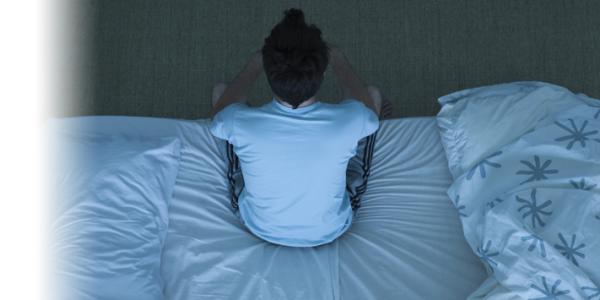
Whether you already had trouble sleeping before the COVID-19 crisis or your sleep difficulties are a new development, sleep issues can lead to serious health effects.
Getting regular, high-quality sleep is an important part of staying healthy. As we shelter in place during the COVID-19 pandemic, you may have noticed your quality of sleep declining with the understandable anxiety — in addition to the many disruptions to your regular routine. While a couple nights of tossing and turning is nothing to be alarmed of, if inadequate sleep is left unmanaged for an extended period of time it can negatively impact your health in serious ways.
Skip
Short term effects:
- Concentration troubles: Without an adequate amount of quality sleep, it’s difficult to think clearly, and your creativity and problem solving skills can be impaired.
- Mood swings: Poor sleep can make you moody, emotional and quick tempered. It can also exacerbate mental health conditions like anxiety and depression.
- Poor balance: Lack of sleep can also affect your alertness, negatively impacting your balance and coordination and making you more prone to accidents like slips and falls.
Long term effects:
- Memory issues: Your brain processes and stores new information while you sleep. While poor sleep can impair your short term memory, extended sleep deprivation can have more lasting effects long term.
- Weakened immunity: Inadequate sleep weakens your immune system, making you more susceptible to illness.
- Increased risk of disease: Lack of sleep can lead to a chemical imbalance, which increases your risk for chronic diseases like inflammation, heart disease and obesity.
If you are plagued by poor sleep, there are simple steps you can take to ensure you get the recommended 7-9 hours of sleep per night:
- Set a routine. Add sleep-related tasks to your daily routine. These should include a fixed wake-up time to get your day started, a designated wind-down time to relax and a set bedtime when you turn off the lights (and electronic devices!) and try to sleep.
- Skim current content: With so much negativity in the media, consider turning off the news when you start to feel stressed and limiting your time spent browsing social media so you don’t become overwhelmed.
- See the light. Regular exposure to sunlight is essential for your body to regulate its natural circadian rhythm.
- Stay active. Getting regular exercise helps you sleep more deeply throughout the night. However, try not to exercise in the three hours before bedtime — the boost in body temperature could prevent you from falling asleep entirely.
- Slow down. Utilize relaxation techniques such as breathing, stretching, reading and listening to calming music to help you fall asleep. You can also listen to our free relaxation playlist to help your mind and body slow down before you snooze.
It may take some trial and error to learn which techniques work best for your sleep health. No matter which steps you choose to incorporate into your daily routine, your body will surely appreciate the benefits of improved sleep!
If you have consistently struggled with sleep in the past (even before your daily dose of pandemic worry) there may be an underlying condition keeping you up. Sleep apnea, insomnia and restless leg syndrome are all disorders that affect the body’s ability to stay asleep — and need proper diagnosis and clinical treatment by a health professional. Make sure to talk to your doctor if you think it may have a more serious sleep condition. El Camino Health currently offers virtual appointments 24 hours a day, seven days a week, so you can still get the help you need.
This article first appeared in the May 2020 edition of the HealthPerks newsletter.

